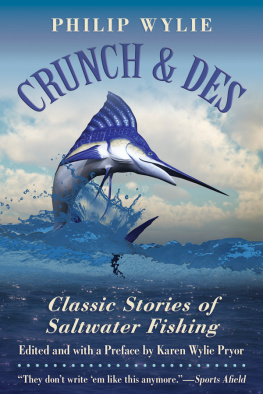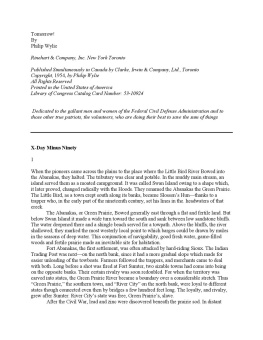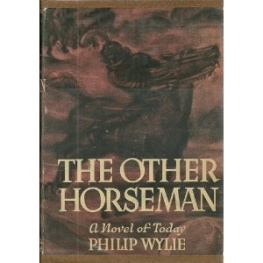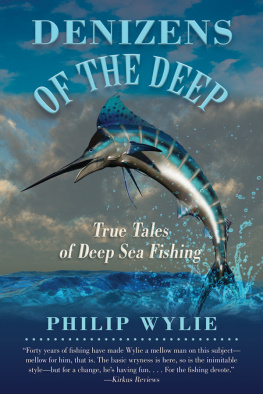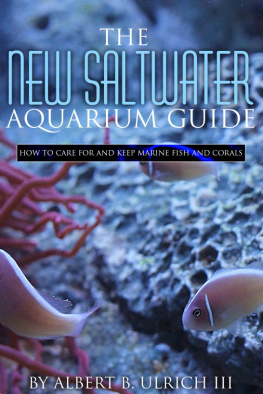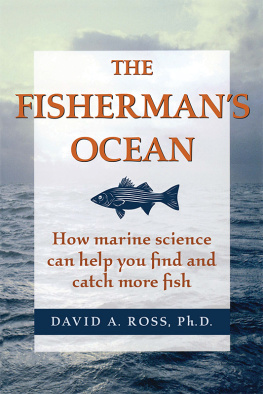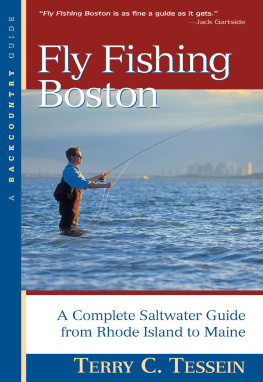Introduction and compilation copyright 1990, 2014 by Karen Pryor
Most of these stories appeared in The Saturday Evening Post. Sailfish, Ho! Appeared in Argosy.
All rights reserved. No part of this book may be reproduced in any manner without the express written consent of the publisher, except in the case of brief excerpts in critical reviews or articles. All inquiries should be addressed to Skyhorse Publishing, 307 West 36th Street, 11th Floor, New York, NY 10018.
Skyhorse Publishing books may be purchased in bulk at special discounts for sales promotion, corporate gifts, fund-raising, or educational purposes. Special editions can also be created to specifications. For details, contact the Special Sales Department, Skyhorse Publishing, 307 West 36th Street, 11th Floor, New York, NY 10018 or .
Skyhorse and Skyhorse Publishing are registered trademarks of Skyhorse Publishing, Inc., a Delaware corporation.
Visit our website at www.skyhorsepublishing.com.
10 9 8 7 6 5 4 3 2 1
Library of Congress Cataloging-in-Publication Data is available on file.
ISBN: 978-1-62873-680-9
eISBN: 978-1-62914-012-4
Printed in China

CONTENTS
PREFACE MY FATHER, PHIL WYLIE

My father, Philip Wylie, was two writers. He was, first, Wylie the ferocious visionary, a preacher of the brimstone sort. This Wylies vituperative attacks against American shortsightednesssuch as Science has Spoiled my Supper and Our Polluted Paradisewere written a full generation before nutrition or ecology became national concerns. His book Generation of Vipers , a sermon on American hypocrisies, was virtually memorized by American servicemen during World War II. Phils mastery of epithetA woman whose urine would etch glassinspired a generation of imitators and put at least one new pejorative, Momism, into the English language.
Yet Phil was also Wylie the gentle storyteller, who could amuse a little daughter at bedtime with ridiculous but moral fairy tales, and whose short stories about two Miami fishermen, Crunch and Des, beguiled Saturday Evening Post readers for almost thirty years. More than once I have faced some irate Wylie fan who insists that the two authors could not have been the same person. Usually it is a Crunch and Des enthusiast: It is understandably hard for some people to imagine that the author of these merry, almost magical tales could have turned out the polemics the other Wylie was famous for. But the stigmata are there: His fabulous lexical gifts, used in these tales for white magic rather than blackA blond of the maplefudge variety; gin-clear water; the cloying crimson of a Florida sunset. And above all, his descriptions of the fish, such as the marlin that bounded out of the water, immense and shocking. Silver and blue. A fish with a bill like a baseball bat and eyes the size of teacups. Enraged. An archetypal marlin; a Wylie fish.
Phil loved fishing. Any kind of fishing. He was happy to dig worms and catch punkinseeds in a farm pond, and often did so with my children in his later years. When he first started doing well as a writer he did not spend his money on fast cars and fancy furniture, but on fishing, hiring charterboats to hunt for marlin and sailfish in the Gulf Stream off the Florida coast. Thus began the fishing stories. Forty-nine, including several three- and six-part serials, appeared in the Saturday Evening Post, and twenty more were published elsewhere.
Phil often based a story on a real event. An experience of his favorite charterboat captain, Harold Schmidt, and his mate, provided the basis for the first Crunch and Des story, Widow Voyage. Sometimes he borrowed real people: The hero of Once on a Sunday is a portrait of Phils father, my Grandpa Wylie, who was just such a craggy-faced, benign Scottish Presbyterian minister. Sometimes life borrowed from Phil: Shortly after Miss Jones caught her tarpon from the drawbridge (Light Tackle) a real person caught a record fish under similar circumstances, tying up car and vessel traffic in all directions. The traffic cop who showed up ignored the traffic and instead helped the fisherman to the shore and then waded in, uniform and all, and beached the fisha detail, Phil said, that he would not have dared to invent.
World War II changed Miami. There were indeed enemy ships offshore, and oil, wreckage, and worse on the beaches. Fishing boats like the Poseidon were pressed into patrol service and sometimes saw combat. Several stories in this collection reflect those events. In The Shipwreck of Crunch and Des, the development of fishing gear for life-raft survival did proceed much as described. The elite group of international big-game fishermen who put those kits together included Phil Wylie; Wylie himself had been temporarily lost at sea, while testing life raft fishing gear.
Phil was a careful journalist and a gifted observer; his accounts of fish and fish behavior are textbook-accurate. But the Crunch and Des stories, though accurately set and as vivid as dreams, are not realismthey are romantic idylls. Dangersstorms, stingrays, uncooperative bankersnever cause permanent damage. The red-faced selfish tycoon is sent home chastened; the scurrilous boat captain who steals customers, fishes illegally, and doesnt keep his boat clean either mends his ways or is banished from the Gulf Stream Dock, that timeless fishing Eden. Crunch and Des may be wrongheaded, but they are always right in the end. The guy almost always gets the girl. And everyone catches fish who deserves to do so. These stories entertain the mind and satisfy the soul.
Phils characters, sometimes appearing over and over again, are not so much stereotypes as archetypes. Crunch is the epitome of honor, Des of strength; wisdom comes from Crunchs wife Sari (an idealization of my beloved and beautiful stepmother, Ricky Wylie). Heroes and heroines are often in disguise; Phil relished the protagonistmetaphorically, himselfwhose mild-mannered exterior concealed the man of steel (in fact he originated this Superman character in a 1930 novel, Gladiator). Ultimately, many of these stories are fairy tales. Miss Jones, the jobless librarian who is thrust into the world and goes fishing with her last dollar, has a predecessor in Snow White. The disagreeable rich man with the lovely daughter, a favorite character (Danger on Coral Key), is the traditional powerful king with a captive princess, to be won through deeds of daring by a poor but honest peasant lad.
Fishing provides the deeds of daring. In these stories Phil demonstrates the thrills in every kind of fishing Miami has to offer, from battling giant tunas off Bimini to casting for bonefish in the Florida Keys. He can make bait-fishing for your supper (Spare the Rod) just as exciting as boating a four-hundred-pound blue marlin, and thats because he felt that way himself. I have seen Phil as tense as a big-game hunter, plug-casting for pan-sized mangrove snappers under the pilings of a dock. Ive seen him just as thrilled with the resulting catch as with an International Game Fish Association record billfish. And he worked at passing that enthusiasm on to others, including me.
When I was six, visiting my father and stepmother in Florida, Phil set a fish trap off the seawall in Biscayne Bay behind his house and caught for me a small octopus, a creature that transfixed me with its mysteriousness as it promptly squeezed itself right through one-inch-mesh chicken wire and returned to Biscayne Bay. When I was eight, Phil bought me my first aquariumguppies and mollies, tetras and zebra fish, and a little turquoise catfish, all species I still admire. When I was twelve Phil taught me how to rig lures for trolling in the Gulf Stream (they had to be perfect) and when I was fourteen he taught me to cast accuratelyin the backyard in South Miami, using a hookless plug, with an old tire for a targetso I could go bonefishing with him.

